A PEEK inside some Astrology Software
Mark Honeychurch - 16th September 2024
When Bronwyn said she was going to look into astrology software after getting a reading at a psychic fair the other day, I figured it’d be good to have a look into the software itself and see what I could find. So, with Bronwyn’s help, I identified a few popular astrology programs and got to work installing them on my PC and poking around them.
Astrolog
First up was the open source software Astrolog, whose website, installer and app all look like they’re firmly planted in the late 1990s:
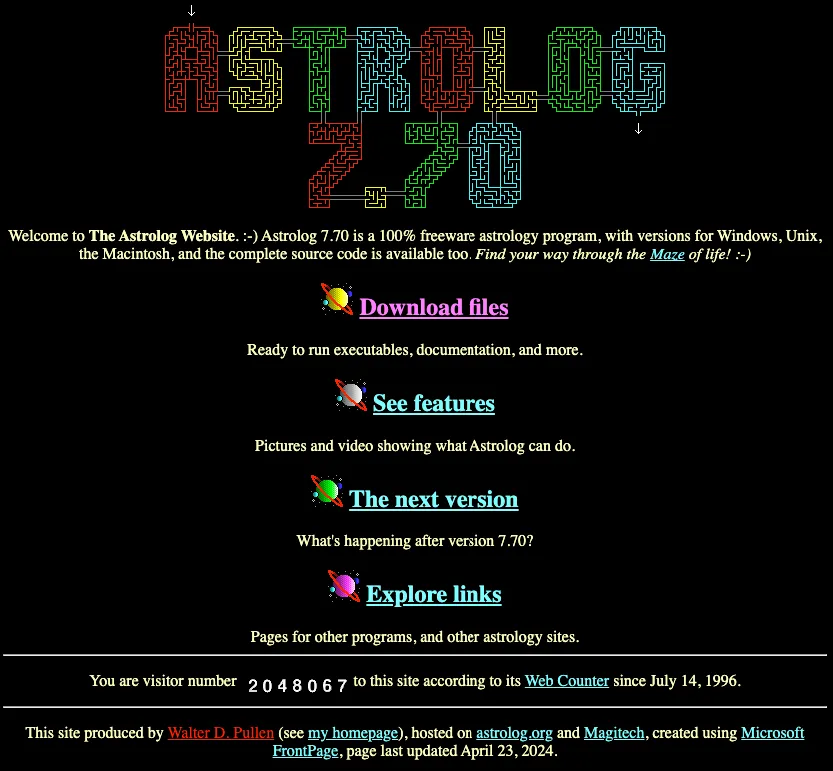
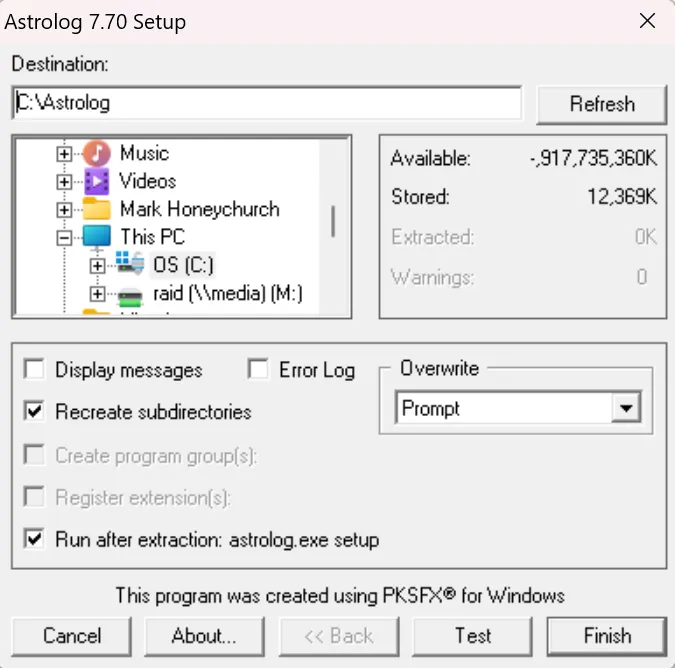
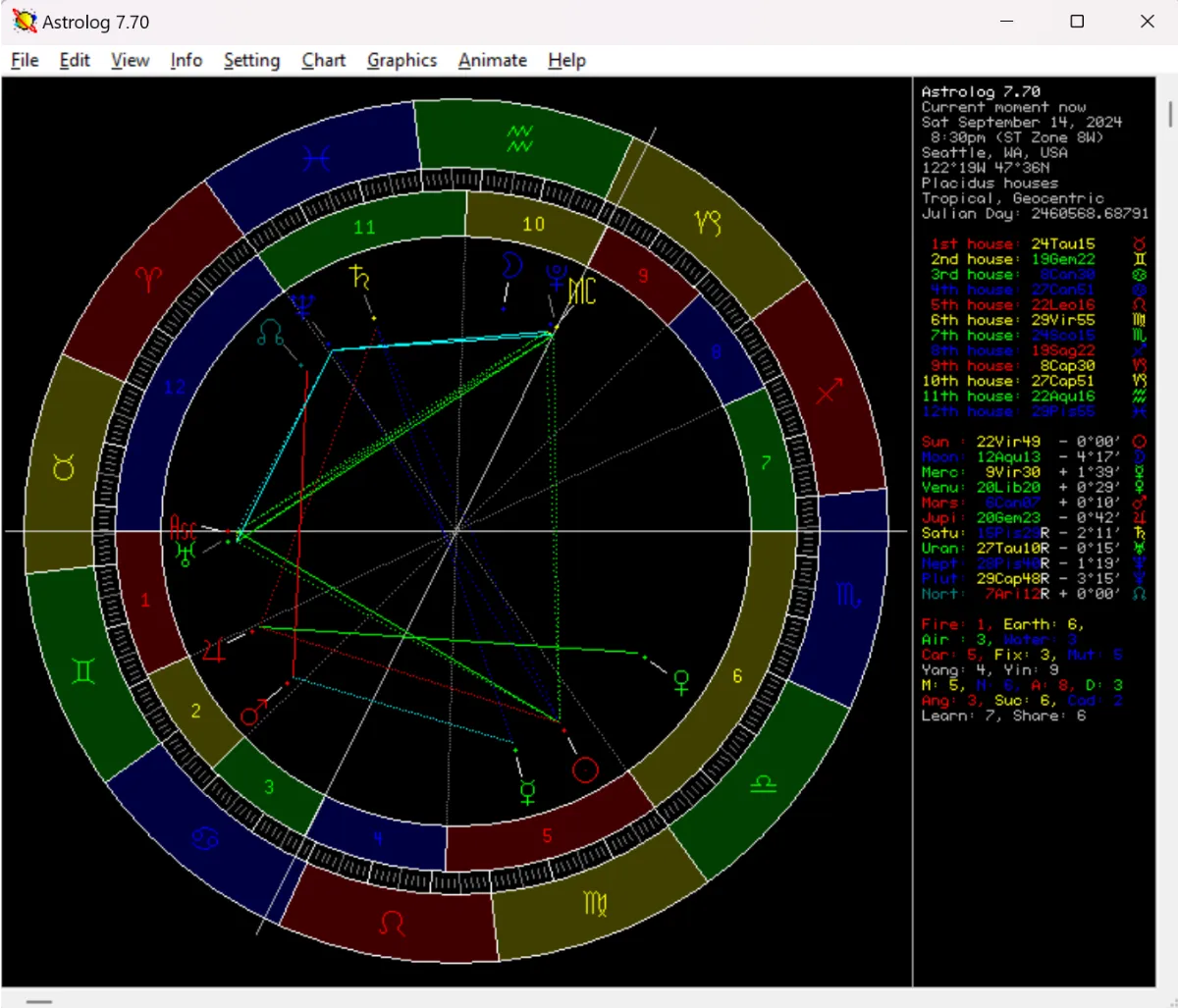
I installed this software on my laptop, and set to work trying to see what I could find out about it, starting with an attempt at decompiling.
When software is written it needs to be converted from a human-readable and writable format (source code) into a computer-readable format (machine code). This process is called compiling, and officially this is a one-way street. All the niceties of writing a piece of software, such as descriptively named variables and convenient reusable functions, go away when you compile it. However, there is a trick called decompiling, where you can use a piece of software to try to reverse engineer some code from an executable file back into something that’s human readable. Function and variable names and other useful bits of information are lost, but a decompiler can at least give these functions semi-useful names like “function_1”.
For Astrolog, I used an interesting piece of open source software called Ghidra to decompile it. I say interesting because the software I used is written by the NSA - the National Security Agency - in the US, a shadowy high-tech government organisation that is involved in state-sponsored hacking and other skullduggery. I’m not sure why Ghidra was made available to the public as an open source project. Although the NSA made it sound like they were doing for all the right reasons, I can’t help but think that there might be more nefarious motives - or maybe just that the tool, despite being immensely useful for decompiling code, is far more rudimentary than the tools they keep close to their chest. It wouldn’t surprise me if the NSA had been looking into using AI for decompiling software these days, as presumably AI tools would do at least a half-decent job of making up descriptive names for the variables and functions it recovers from the machine code.
I used a tool within Ghidra to look for all the strings inside the Astrolog code, and the tool immediately returned what looks like a bunch of Forer, or Barnum, statements. There was a lot of feel-good text that would make anyone feel good about themselves, and nothing that seemed at all negative.
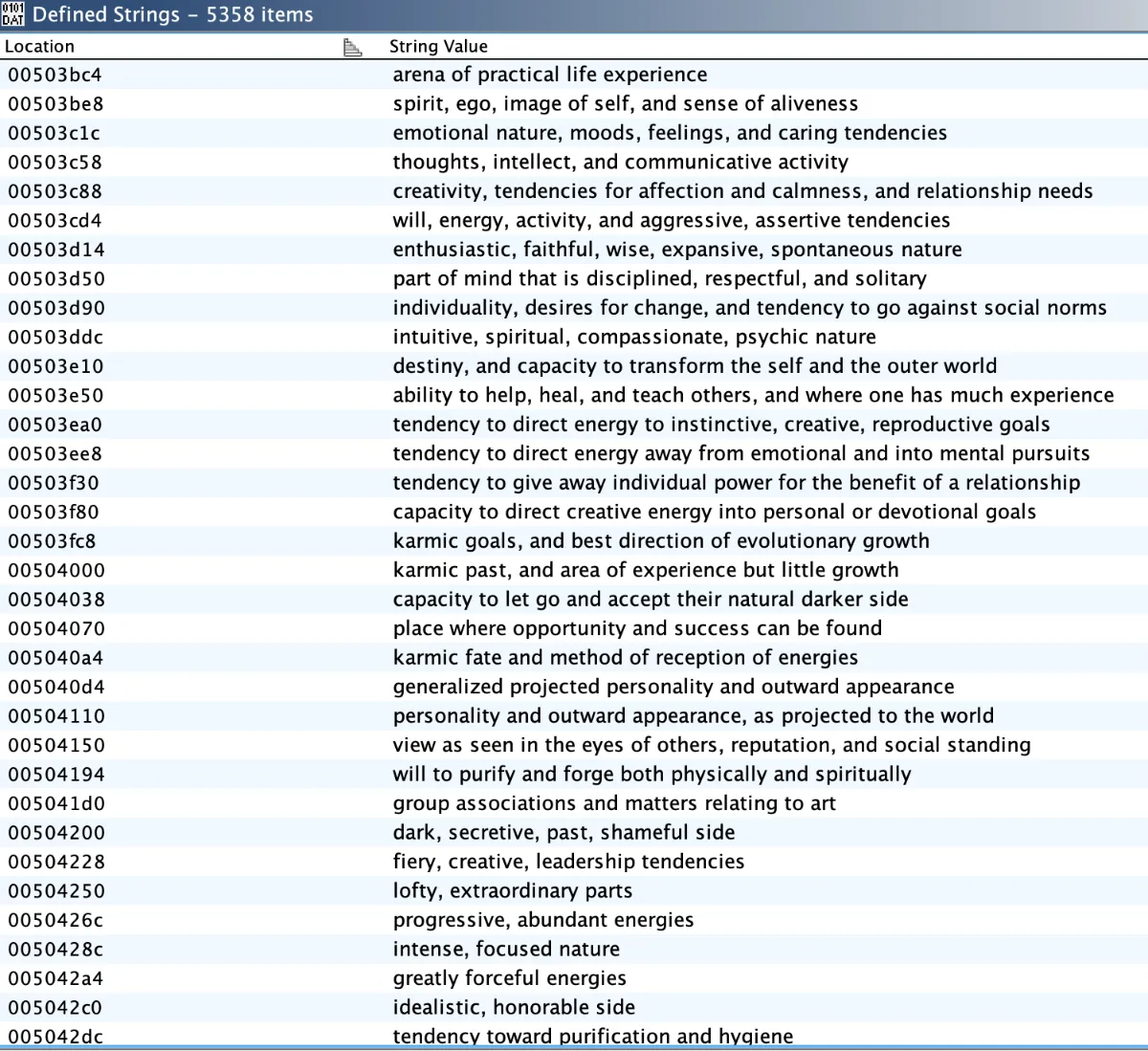
I then remembered that Astrolog, like Ghidra, is open source, meaning the pre-compilation source code is available online. The most popular place to store code these days is GitHub, so I visited the site to find the Astrolog code. Once I’d done this, I searched for the word “karmic” and quickly found the file I was looking for - intrpret.cpp. And no, that’s not an accidental typo of “interpret”, it just shows how old this software is, as they appear to have kept all filenames to the old 8.3 length restriction - 8 characters for the name (intrpret, I think short for interpretations), and 3 for the extension (cpp, meaning this code is written in a language called C++).
The contents of this file show more of the same fluff, all positive affirmations with no real negative traits:
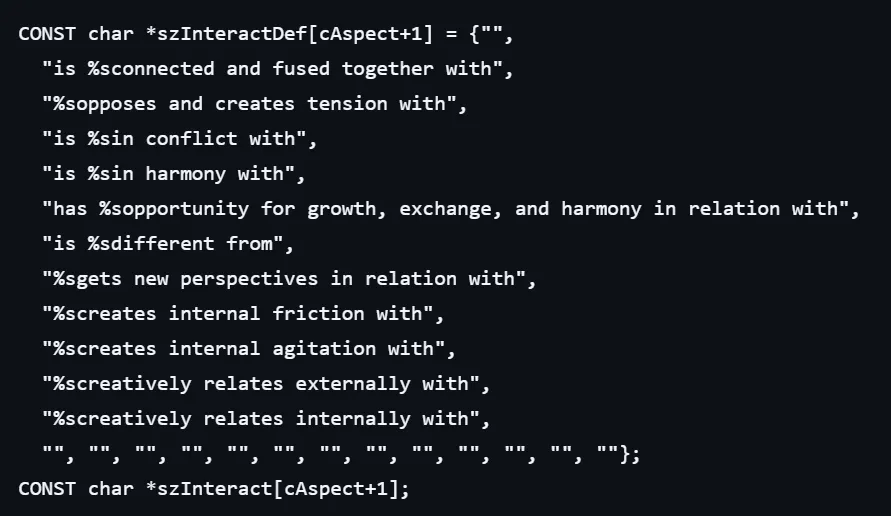
This makes me wonder what an astrological reading for a psychopath or a narcissist would look like - presumably it would make them look like an angel.
Astrolabe
Sadly the only way to get hold of Astrolabe’s software is to pay $360, and I wasn’t going to do this. I did note, however, that this company also seems to be stuck in a time warp:

Janus
The Janus website at least looks like it’s from this century, and there was also a demo version of the app that I could download and install for free.

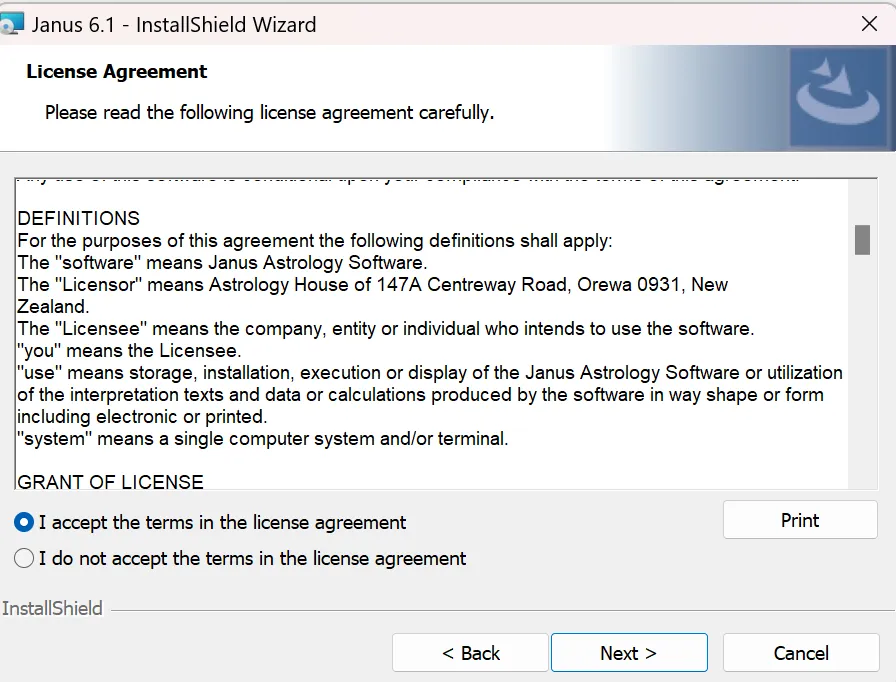
However when I opened the app, I was greeted by a familiar very basic, bare-bones user interface:
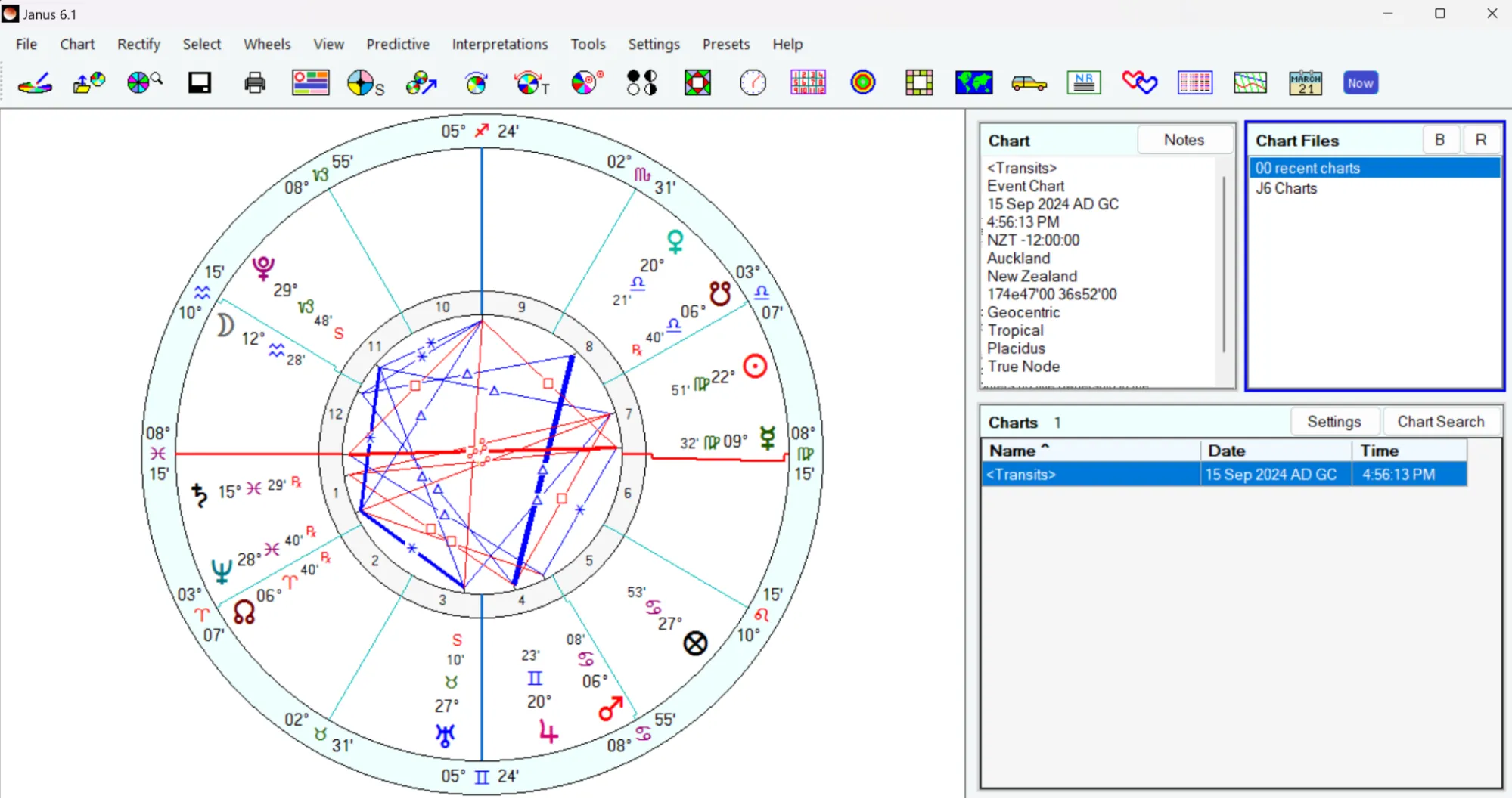
Janus has a bunch of menus that make it feel all sciencey - kind of like a cargo cult version of astronomy:
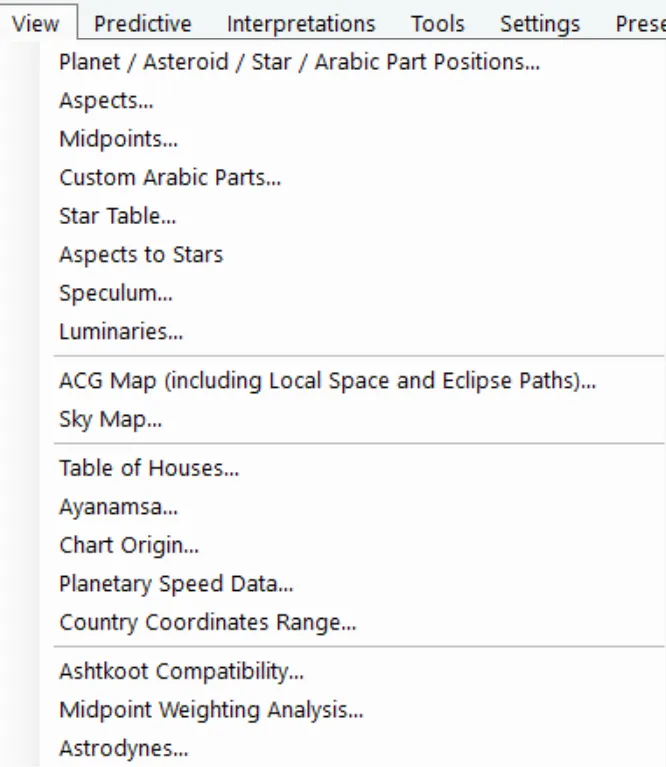
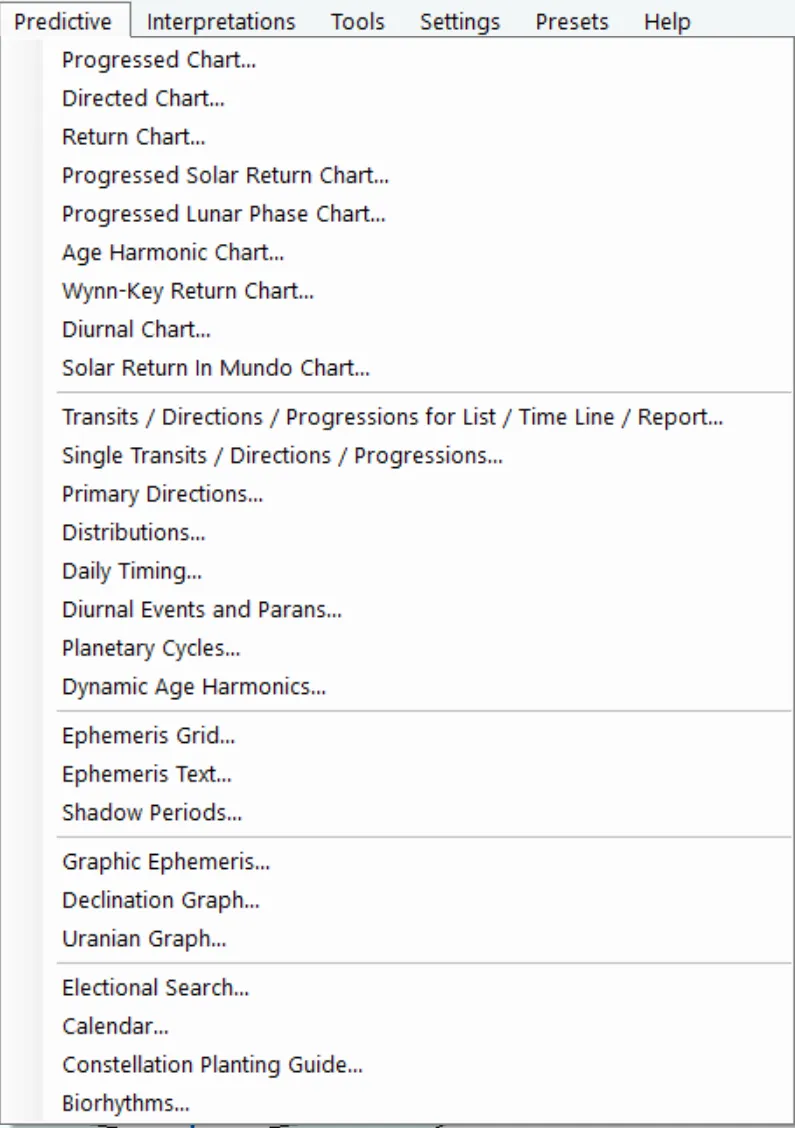
However, rather than actually running the software, I figured we could have a poke around the installed files. I browsed to the folder “C:\Program Files (x86)\Astrology House\Janus 6” to see what was there:

A quick browse through the subfolders, and one that stood out immediately was called “Interps”, presumably short for Interpretations - the same name for this text as the Astrolog software used. This folder is full of plain text files that appear to be used for the software’s predictions. It’s weird that these files aren’t obscured in some way, so that anyone who downloads the demo version has access to read them, but maybe the company just doesn’t care, or maybe they don’t realise these files are accessible so easily.
Looking at just a few predictions from some of these many text files gives us a fairly good idea of what the program spits out:
aspects to stars english ah.txt
Pherkad, is a star in the constellation of Ursa Minor (The Little Bear). Strong-willed and strong-minded. Full of heart and passion. Visionary and intuitive.
astrolocality english ah.txt
You are ambitious for professional success here and will work hard to achieve your goals. You have good self-discipline here and apply yourself diligently to your duties. You are a reliable and trustworthy worker, who is capable of holding important and responsible positions. Stability in your career contributes to a stable and secure home life and vice versa.
directed planets in houses english ah.txt
With Uranus now in this house, expect a change in financial circumstances.
directed to natal aspects translation resource
During this period you are easily excitable; your emotions are heightened and intensified. You may be prone to reactive or impulsive behaviour now.
transit planets in signs english ah.txt
^You have/He has/She has^ a compassionate and benevolent nature, coupled with an abundance of good intentions. ^You are/He is/She is^ often motivated by altruistic and idealistic inclinations and knows who to give unconditionally. ^You have/He has/She has^ an interest in metaphysical subjects with the potential for tapping into a vast spiritual reservoir. Alternatively, ^you/he/she^ can become lost in escapist forms of recreation, including intoxicants and stimulants. Over-indulgence and addictive tendencies can be harmful.
There are thousands and thousands of platitudes in these files, which I’m guessing must have taken a long time to write and compile. All of them seem wishy-washy enough that they’re bound to resonate with a good percentage of recipients. They may feel deep and meaningful, but in reality they’re not really saying much at all - and definitely nothing that’s going to help people live their lives.
Conclusion
A brief search online for some of the text I’ve listed above suggests that many astrologers these days are just lazy, not even bothering to use their own cold-reading skills. Instead they’re charging money to simply run this software and print out a PDF report for their clients - and, like the software’s UI, the documents look pretty dated. It seems like there’s a business opportunity here for a piece of astrology software that doesn’t look like it was made in the ’90s, although sadly I don’t have the lack of morals to do this myself.